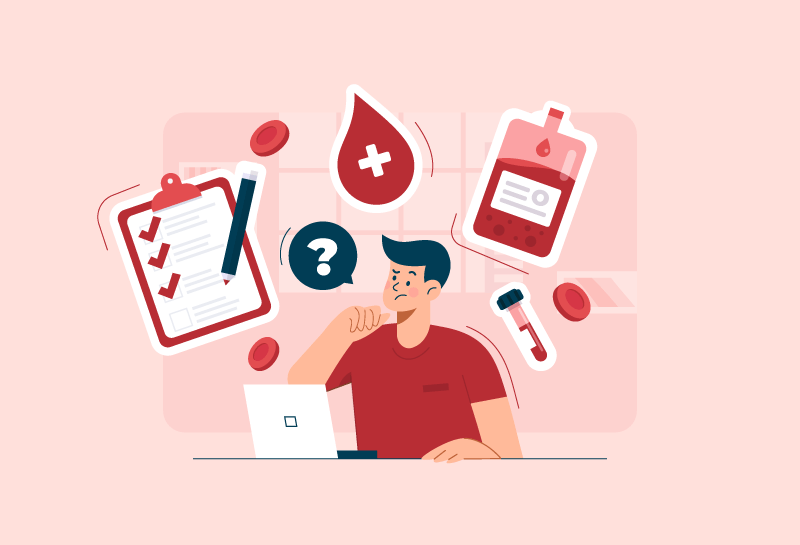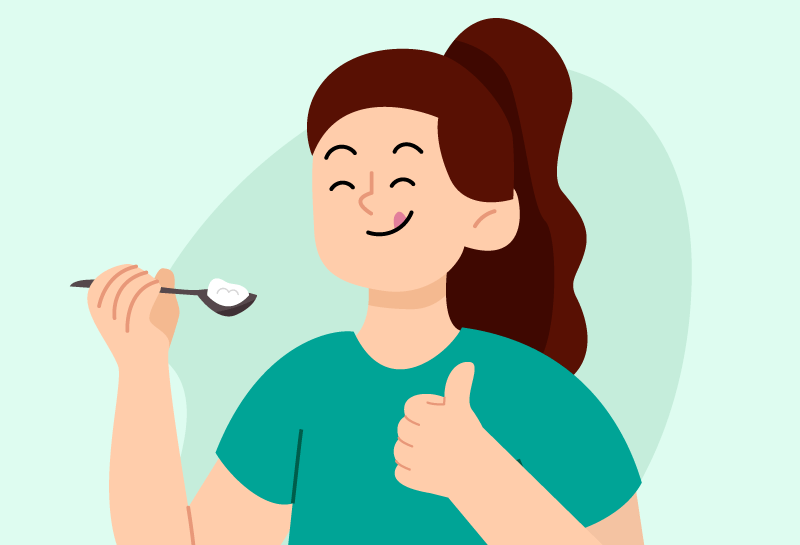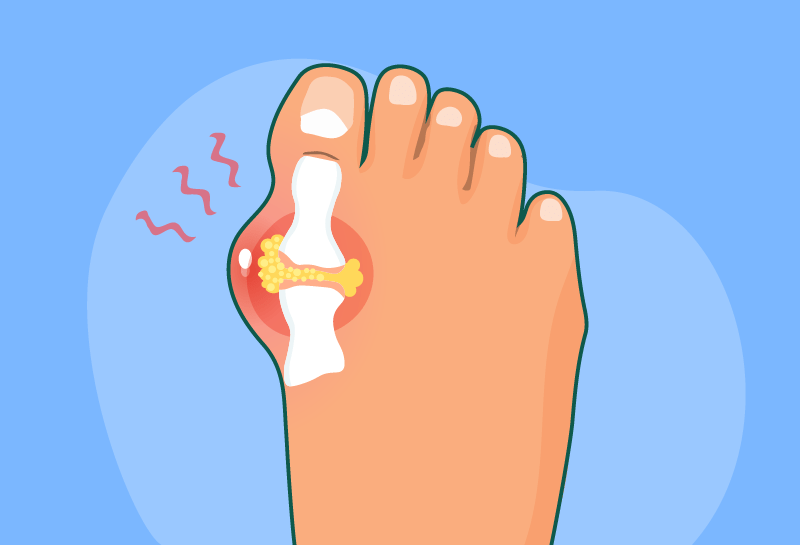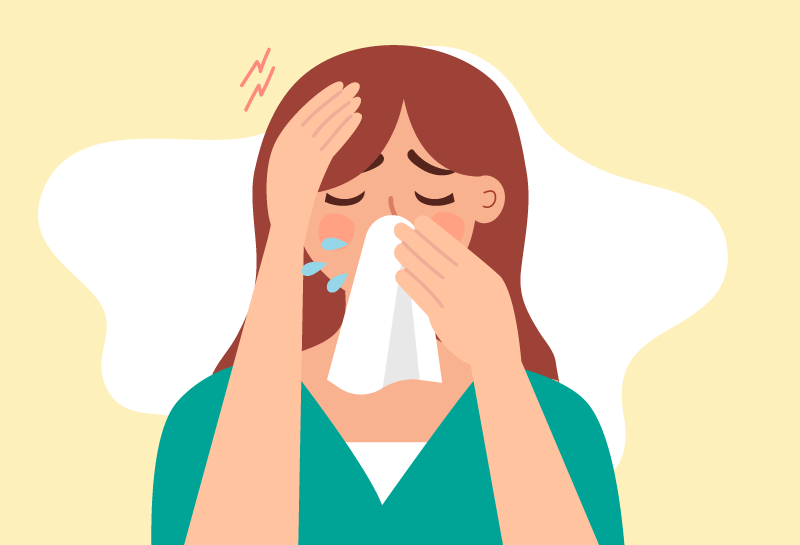Have you ever felt your heart race before a big presentation? Or found yourself awake at night, unable to silence your racing thoughts? Anxiety can appear in many forms, from the nervous anticipation before an important meeting to the overwhelming dread that takes over your life. While occasional anxiety is part of being human, for many, it becomes a persistent presence that affects everything. But when does it cross the line into something more serious? And what can you do about it?
If you're constantly feeling on edge, overthinking even the smallest decisions, or avoiding situations due to fear, you're not alone. Anxiety disorders are among the most common mental health issues globally, affecting over 301 million people worldwide, according to the World Health Organization (WHO). Despite how widespread it is, many still struggle in silence, unaware that it’s more than just "stress" or "nervousness." In this article, we’ll explore the signs of anxiety, how it impacts daily life, and the practical steps you can take to manage it.

EXPERT INSIGHT
Anxiety is a natural and adaptive response; it acts as an internal alarm system that warns us of potential dangers. In its normal form, it helps us stay alert and focused, ensuring that we take appropriate actions in stressful situations.
However, anxiety crosses into the realm of a disorder when it becomes persistent, frequent, and disproportionate to the situation at hand. As Jing Xuan explains, "Anxiety may become a disorder when it becomes more frequent and intense to the point of affecting our functioning. For example, when we experience worries most of the time about a wide array of issues or situations, or when our anxiety is so high that it affects our ability to perform everyday tasks, such as having difficulty leaving the house or going to work."
Early warning signs may include feeling physically and mentally drained, experiencing difficulty concentrating, and avoiding activities or places that previously felt manageable.
The many faces of anxiety: Which one are you facing?
Anxiety can take many forms, and how it manifests depends on the individual. For some, it’s a constant undercurrent of worry; for others, it can be triggered by specific situations or events. Here are the most common types of anxiety disorders:

Generalised anxiety disorder (GAD)
Uncontrollable, excessive worry about multiple areas of life, including work, health, and relationships. It doesn’t subside after the stressor is gone.

Social anxiety disorder (SAD)
An intense fear of being judged or humiliated in social situations, leading to isolation and difficulty forming relationships.

Panic disorder
Sudden, unexpected panic attacks that include symptoms like rapid heartbeat, shortness of breath, and overwhelming dread. These attacks may happen without warning and cause individuals to avoid places where they’ve previously occurred.

Specific phobias
Irrational fears of specific objects or situations, such as spiders, heights, or flying, that lead to avoidance behaviours.

Post-traumatic stress disorder (PTSD)
Anxiety triggered by a traumatic event, causing flashbacks, nightmares, and hypervigilance.
Each type of anxiety has its own set of challenges, but what they all have in common is their ability to disrupt your daily life.
What causes anxiety?
Anxiety doesn’t always have a clear, singular cause, but several factors can contribute to its development. Common causes include:

Social factors
Social interactions or fears of being judged can lead to anxiety, especially for individuals with social anxiety disorder. The pressure to conform or succeed in social environments, or even the feeling of being alone or unsupported, can trigger anxiety. Modern times have seen increased social media exposure, which can exacerbate these feelings, as people constantly compare their lives to others.
Research consistently shows that social media use is linked to heightened feelings of loneliness and anxiety. A systematic review of multiple studies published in the International Journal of Environmental Research and Public Health found that increased social media use correlates with negative mental health outcomes, particularly among individuals who engage in frequent social comparison. Additionally, research conducted by the UK's National Health Service (NHS) highlights that social isolation is a significant risk factor for anxiety and depression.

Inactive lifestyle
Living a sedentary lifestyle can significantly contribute to anxiety. A lack of physical activity reduces the body’s ability to regulate stress through the release of endorphins, the natural mood boosters. Regular physical activity not only improves mood but also helps regulate sleep, which is critical for mental health. Inactive individuals are more prone to feelings of stress and anxiety due to the absence of physical outlets for tension.
The World Health Organization (WHO) states that physical inactivity is a leading risk factor for anxiety, depression, and other mental health conditions. A study published in The Lancet Global Health found that nearly one-third of the world's adult population is insufficiently active, increasing the risk of various health issues, including anxiety. WHO recommends at least 150 to 300 minutes of moderate-intensity physical activity per week for adults to improve mental health and wellbeing.

Poor diet
A poor diet, especially one high in processed foods, caffeine, and sugar, can have a direct impact on anxiety. Nutrient deficiencies, such as a lack of omega-3 fatty acids, magnesium, and B vitamins, can contribute to feelings of anxiety and stress. Additionally, high levels of caffeine can incrvease feelings of nervousness and exacerbate anxiety symptoms.
The National Institute of Mental Health (NIMH) reports that poor dietary habits, such as high intake of sugar and processed foods, can exacerbate anxiety symptoms. Conversely, research from Harvard University's T.H. Chan School of Public Health indicates that consuming a nutrient-rich diet, including omega-3 fatty acids and magnesium, has been shown to reduce anxiety symptoms and improve overall mental wellbeing.

Genetics and family history
Anxiety disorders tend to run in families, suggesting a genetic component. If you have a family member with anxiety or another mental health condition, your risk of developing anxiety may be higher. Environmental factors like childhood trauma or early life stressors can also play a role.
Studies consistently show that genetics plays a role in anxiety disorders. A review of data from multiple studies reveals that individuals with a family history of anxiety disorders are more likely to experience anxiety themselves. This suggests that genetic predispositions combined with environmental factors contribute to the development of anxiety disorders later in life.

EXPERT TIP
Lifestyle plays a significant role in managing anxiety. Poor sleep and an unbalanced diet can negatively impact mental wellness, while regular exercise helps promote the release of feel-good chemicals in the brain, which can help alleviate anxiety.
Jing Xuan advises that we aim for a balance between nourishing and depleting activities in our lives. "It can be helpful to review your typical day, both work and non-work, and categorise activities as nourishing or depleting. While a perfect balance isn’t always possible, if you notice that there are more depleting activities than nourishing ones, it’s worth making a conscious effort to incorporate more nourishing activities, like exercise, into your routine. This can significantly support your overall mental wellness.
When anxiety becomes a problem
While occasional anxiety is perfectly normal, it becomes a problem when it disrupts your daily life. Here are some signs that your anxiety may have crossed into a more serious condition:

Physical symptoms
Constant muscle tension, headaches, dizziness, and digestive problems are common physical manifestations of anxiety.

Sleep disturbances
Racing thoughts that keep you up at night or cause you to wake up frequently are signs that anxiety is taking a toll on your health.

Avoidance
If you find yourself avoiding certain situations, activities, or social interactions because of anxiety, it’s a clear indicator that it’s affecting your daily functioning.

Constant worry
Anxiety often presents as an irrational, unrelenting worry that’s disproportionate to the situation.

Impact on life
Anxiety can start to impact your work, relationships, and overall enjoyment of life. If it’s getting in the way of your personal or professional life, it’s time to take action.
If you recognise yourself in any of these symptoms, it’s time to seek help. You don’t have to face anxiety alone.

EXPERT TIP
An effective coping strategy when facing anxiety-provoking situations is to practice mindful breathing. Simply noticing your breath can help ground you in the moment. One technique Jing Xuan recommends is finger breathing: as you breathe in, trace upwards on the sides of your fingers, and as you breathe out, trace downwards. This rhythmic pattern helps calm both the mind and the body.
As anxiety often brings a flood of worries, learning to distance yourself from these thoughts is also helpful. Jing Xuan suggests to imagine putting your thoughts on passing clouds in the sky and letting them come and go in their own time. This technique helps create emotional distance and reduces the intensity of anxious thoughts.
When should you seek help?
If you’ve been experiencing anxiety that persists for weeks or months, it's time to seek professional support. Here are a few signs that professional intervention may be necessary:
- Persistent anxiety: If your anxiety continues for six months or longer and doesn't subside, it’s important to consult a healthcare provider.
- Impact on relationships: Anxiety can cause strain in relationships, whether through avoidance or irritability. If it’s affecting your interactions with others, it’s time to reach out for support.
- Physical health symptoms: Persistent symptoms like chest pain, dizziness, or difficulty breathing are signs that your anxiety may be affecting your physical health, and you should see a doctor immediately.
- Difficulty completing tasks: Anxiety can make it difficult to perform at work, school, or even in daily activities. If you’re struggling to focus or meet deadlines, professional guidance can help.
- Turning to unhealthy coping mechanisms: If you find yourself relying on substances like alcohol or food to cope with anxiety, it’s time to address the issue head-on with the help of a professional.

EXPERT INSIGHT
Chronic anxiety can push the body into a constant state of tension, triggering the fight-or-flight response. Over time, this can have a significant impact on physical health, leading to the release of excessive stress hormones and muscle tension. Research has shown that anxiety is linked to various physical health concerns, including heart disease, respiratory conditions, and chronic pain.
To reduce the long-term health risks associated with anxiety, it’s important to be mindful of your anxiety levels and take proactive steps to engage in nourishing activities regularly. Regular physical exercise, a balanced and healthy diet, and adequate sleep are essential for supporting both mental and physical wellbeing.
Resilience: Your edge in overcoming anxiety
Anxiety can feel like an unyielding force, but building resilience is one of the most effective ways to cope. Resilience is the ability to adapt and recover from stress and challenges, making it easier to manage anxiety and other difficult emotions.
Resilience doesn’t mean you won’t feel anxious. it means you’ll have the mental strength to face those feelings without letting them control your life. Here’s how you can start building resilience:
- Cultivate a growth mindset: View challenges as opportunities to grow. Embrace each difficult situation as a chance to learn and strengthen your coping mechanisms.
- Build a support network: Surround yourself with people who offer encouragement, comfort, and understanding. Connecting with others who can relate to your struggles is crucial in building resilience.
- Practice self-compassion: Be kind to yourself. Instead of criticising yourself for feeling anxious, embrace the idea that it’s okay to struggle and that it’s a part of being human.
- Set realistic goals: Break down large tasks into smaller, more manageable steps. Achieving small wins can help build your confidence and reduce anxiety.
- Maintain perspective: Remind yourself that anxiety is temporary. With time, effort, and support, you’ll regain control of your mental health.
- Embrace healthy coping strategies: Regular exercise, mindfulness techniques, and creative outlets like writing or painting are excellent ways to alleviate anxiety and build resilience.

EXPERT INSIGHT
Anxiety often arises from an interplay between biological, psychological, and social factors. Biological factors, such as genetics and imbalances in neurotransmitter levels in the brain, can explain some of the underlying causes of anxiety. Research has shown that medications can help manage anxiety by addressing these imbalances.
Jing Xuan explains, “Recent studies have shown that brain activity plays a significant role in anxiety. Medications can influence brain waves linked to emotional regulation, which provides relief for individuals struggling with anxiety.”
In addition to biological factors, psychosocial elements, such as rumination or perinatal mental health can contribute to the development of anxiety disorders. Psychotherapy can target these areas effectively. For instance, third-wave therapeutic approaches like acceptance and commitment therapy (ACT) help individuals create space for difficult thoughts and learn to distance themselves from these thoughts instead of dwelling on them. Interpersonal therapy (IPT), an evidence-based intervention, is particularly useful in improving relationships and social functioning, making it especially helpful for individuals transitioning into parenthood.
Anxiety may feel like an overwhelming presence, but it doesn’t have to dictate your life. By recognising the signs, building resilience, and seeking professional help when needed, individuals can regain control of their wellbeing. Remember: anxiety is manageable, and with the right support, you can lead a fulfilling life, free from its grip.
If you or someone you know is struggling with anxiety, don’t wait and reach out for help today. Whether it’s talking to a mental health professional, trying new coping strategies, or simply talking with someone you trust, the first step toward recovery is just one conversation away.
This article has been written by Healthful For You and does not represent the opinions, views, or endorsements of the Expert Contributor of this article. The Expert Contributor has solely provided expert insights and tips for informational purposes. Any interpretations, conclusions, or statements beyond these contributions are those of the author and do not reflect the views of the expert contributor. This content is intended for informational purposes only and should not be considered as medical, legal, or professional advice.



 Copied
Copied























 5 mins read
5 mins read 





